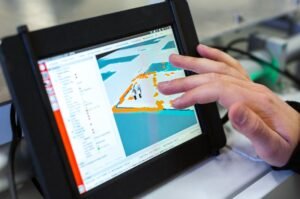Top Jobs That AI Can’t Replace
Artificial Intelligence (AI) has made significant advancements in recent years, transforming various industries and revolutionizing tasks that were once done exclusively by humans. While AI has shown its ability to automate tasks efficiently, there are still numerous jobs that require human expertise and skills that AI cannot replicate. In this article, we will explore the top jobs that AI can’t replace.
Key Takeaways
- Some jobs rely heavily on human creativity and adaptability.
- Jobs requiring emotional intelligence and empathy are difficult for AI to replicate.
- High-level decision-making roles involving complex judgment are challenging for AI.
1. Creative Professions
In the realm of creativity, artists, writers, musicians, and designers have the upper hand. AI may assist in generating ideas or analyzing data, but it lacks the ability to truly conceive and understand artistic concepts. *Human creativity breathes life into projects and captures the essence of abstract ideas.*
Table 1: Creative Professions that AI Cannot Replicate
| Profession | Reasons Why AI Cannot Replace |
|---|---|
| Artist | AI lacks intuitive understanding of aesthetics and emotions, essential in creating unique and meaningful artwork. |
| Writer | AI struggles with understanding complex narratives, emotions, and inserting personal perspectives into storytelling. |
| Musician | AI cannot replicate the genuine emotions and soulful expression that musicians convey through their compositions and performances. |
| Designer | AI lacks the ability to think outside the box, make creative decisions, and adapt designs to cultural or societal preferences. |
2. Healthcare and Social Services
Jobs that involve caring for others, such as doctors, nurses, therapists, and social workers, require emotional intelligence and empathy that AI lacks. *Truly understanding and comforting patients or clients in a compassionate manner provides immeasurable value.*
Table 2: Healthcare and Social Services Roles that AI Cannot Replicate
| Role | Reasons Why AI Cannot Replace |
|---|---|
| Doctor | AI is incapable of establishing a personal connection with patients or demonstrating empathy, which is crucial for proper diagnosis and treatment. |
| Nurse | AI lacks the emotional intuition required to comfort and support patients during their recovery process or in challenging situations. |
| Therapist | AI cannot provide the same level of trust, understanding, and non-judgmental environment needed for effective therapy sessions. |
| Social Worker | AI struggles to deal with complex human emotions and handle sensitive social situations, limiting its effectiveness in this role. |
3. Leadership and Strategy
High-level decision-making roles that involve complex judgment, critical thinking, and strategic planning are challenging for AI to replace. *Exceptional leadership skills, along with a deep understanding of human dynamics, are crucial in driving organizations forward.*
Table 3: Leadership and Strategy Roles that AI Cannot Replicate
| Role | Reasons Why AI Cannot Replace |
|---|---|
| CEO | AI lacks the ability to handle the multiple aspects of running a company, including understanding the market, building relationships, and motivating employees. |
| Strategist | AI struggles with understanding the complex interplay between business, market dynamics, and human behavior when formulating effective strategies. |
| Policy Maker | AI may assist in providing data analysis, but it lacks the judgment, foresight, and ethical considerations necessary for making impactful policy decisions. |
While AI continues to advance, certain jobs will always require the unique capabilities and perspectives of humans. These jobs emphasize the importance of human qualities such as creativity, empathy, and critical thinking. As technology evolves, it’s crucial to recognize that humans possess unique skills that make certain professions indispensable.

Common Misconceptions
1. AI can easily replace all jobs
One common misconception is that AI has the capability to replace all jobs in various industries. While it is true that AI technology has made significant advancements, there are certain jobs that still require complex human skills and emotional intelligence.
- AI is limited in creativity and innovation.
- Some jobs require human connections and empathy.
- Complex problem-solving often necessitates human intervention.
2. Jobs in the creative field are safe from AI
Another common misconception is that AI cannot replace jobs in the creative field, such as writing, designing, or music production. However, AI has already been employed in these areas and has shown remarkable capabilities.
- AI can generate written content, designs, and music.
- AI can assist in enhancing creativity and efficiency.
- Human touch and uniqueness are still valued in creative industries.
3. Medical and healthcare jobs are immune to AI disruption
Many people believe that AI cannot replace jobs in the medical and healthcare field due to their complex nature and the need for human interaction. While AI cannot fully replace healthcare professionals, it can certainly assist and revolutionize healthcare in various ways.
- AI can aid in diagnosing diseases and interpreting medical images.
- Automation and AI can improve the efficiency of administrative tasks in healthcare.
- Human compassion and personalized care remain crucial in medical settings.
4. AI cannot replace jobs in high-level decision-making
There is a misconception that AI cannot replace jobs that involve high-level decision-making, such as CEOs or top executives. While AI cannot possess the same level of experience and intuition as humans, it can still provide valuable insights and assist in decision-making processes.
- AI can analyze huge amounts of data to guide decision-making.
- Human judgment and intuition play vital roles in complex decision-making.
- Ethical considerations often require human intervention.
5. Only manual labor jobs are at risk of being replaced by AI
Many people believe that AI can only replace jobs that involve manual labor or repetitive tasks, neglecting the fact that AI is swiftly advancing in performing cognitive tasks as well. Various roles outside of manual labor are susceptible to AI disruption.
- AI can automate administrative roles with high accuracy.
- AI can replace certain aspects of financial and legal roles.
- Adapting to AI technology and acquiring new skills is crucial in the evolving job market.

Top Jobs That AI Can’t Replace
Artificial intelligence (AI) is revolutionizing numerous industries, but there are certain jobs it still can’t replace. Whether due to the high level of human interaction required or the complex cognitive abilities needed, these professions continue to thrive. Here are ten of the most prominent jobs that AI cannot fully take over, showcasing the importance of human skills and expertise.
1. Psychologists
Psychologists possess invaluable skills in understanding human emotions and behavior, making it an indispensable expertise that AI struggles to replicate. Their ability to build trust, establish rapport, and provide personalized support to individuals makes them vital in enhancing mental health and well-being.
2. Social Workers
Social workers play a crucial role in addressing social issues and advocating for vulnerable individuals and communities. The empathy, compassion, and critical thinking they bring to their work make it challenging for AI to replace their roles in supporting those who require social, emotional, and practical support.
3. Artists
The creative expression and imaginative capacity of artists form a significant part of our culture and society. While AI can generate compositions or artwork algorithmically, it lacks the emotional depth, inspiration, and originality that artists bring to their creations.
4. Teachers
The educational process involves much more than the transfer of information. Teachers foster personal growth, develop critical thinking skills, and provide guidance tailored to each student’s needs. The human touch and ability to connect with students on an individual level remain irreplaceable.
5. Emergency Dispatchers
Emergency dispatchers are the lifeline between individuals in distress and the help they need. They rely on their ability to remain calm under pressure, provide reassurance, and extract necessary information efficiently. These skills cannot be replicated by AI in stressful situations.
6. Politicians
Politicians possess the power to shape laws and policies that govern societies. The ability to understand diverse viewpoints, negotiate, and empathize with citizens is a fundamental aspect of their role. The complex decision-making required in politics still heavily relies on human judgment.
7. Nurses
Nurses are at the forefront of patient care, providing physical and emotional assistance to those in need. Their ability to closely monitor patients, administer medications, and offer comfort requires a level of intuition, compassion, and adaptability that AI cannot currently match.
8. Therapists
Therapists provide a safe space for individuals struggling with mental health concerns. Their expertise in diagnosing conditions, designing treatment plans, and offering personalized guidance demands emotional intelligence, deep understanding, and the capacity for human connection that AI cannot replicate.
9. Musicians
The soul-touching melodies and captivating performances of musicians continue to captivate audiences. AI might compose music, but it struggles to evoke emotions and create the same level of connection that musicians achieve through their live performances.
10. Judges
Judges hold the responsibility of upholding justice and ensuring legal fairness. The interpretation of law, understanding complex cases, assessing facts, and making informed decisions based on human experience remain crucial aspects of their role that AI lacks the capacity to fully emulate.
In a world where AI rapidly advances, these ten professions serve as a reminder that human skills, empathy, and creativity continue to hold immense value. While AI can enhance efficiency and provide valuable assistance, it cannot replace the innate qualities that make us uniquely human. By recognizing the irreplaceable nature of these professions, we can ensure a balanced future, harnessing the potential of AI while cherishing the skills only humans possess.
Frequently Asked Questions
Top Jobs That AI Can’t Replace
What job roles have proven to be resilient to AI disruption?
There are several job roles that have proven to be resilient to AI disruption. These include roles that require high levels of creativity, emotional intelligence, critical thinking, complex problem-solving, and social interaction. Examples of such job roles include artists, therapists, strategists, innovation managers, healthcare professionals, and teachers.
What are some job roles that heavily rely on human empathy and emotional connection?
Job roles that heavily rely on human empathy and emotional connection are difficult to replace with AI. These roles typically involve providing emotional support, counseling, and assistance to individuals. Examples include therapists, psychologists, social workers, and caregivers.
Which job roles demand high levels of creativity and innovation?
Job roles that demand high levels of creativity and innovation are less likely to be replaced by AI. Creative fields such as artists, musicians, writers, designers, and inventors require a uniquely human ability to think outside the box and come up with original ideas.
What job roles require complex problem-solving skills?
Job roles that require complex problem-solving skills are less susceptible to AI disruption. These roles often involve analyzing intricate data, making informed decisions, and solving intricate problems. Examples include research scientists, engineers, analysts, and consultants.
What are some professions that involve high levels of social interaction with customers?
Professions that involve high levels of social interaction with customers are not easily replaceable by AI. Jobs such as customer service representatives, salespersons, event planners, and tour guides rely on human communication, understanding customers’ needs, and providing personalized experiences.
What job roles require advanced levels of scientific or technical expertise?
Job roles that require advanced levels of scientific or technical expertise are less likely to be replaced by AI. Professions such as doctors, surgeons, researchers, scientists, engineers, and IT specialists require specialized knowledge, experience, and critical thinking that AI is not capable of replicating fully.
Are there any career paths where AI can be utilized as a valuable tool rather than a replacement?
Absolutely! AI can be utilized as a valuable tool in various career paths. For instance, in fields like data analysis, AI can help process and extract insights from vast amounts of data. Similarly, in industries like finance, AI can assist in risk assessment and fraud detection. AI’s role in these domains is to enhance human capabilities rather than replace them entirely.
What job roles are highly reliant on strategic planning and decision-making?
Job roles that are highly reliant on strategic planning and decision-making are less likely to be replaced by AI. Professions such as CEOs, strategic managers, policymakers, and board directors involve making crucial decisions based on a variety of factors, including long-term goals, company values, and market dynamics.
What are some job roles that involve artistic expression and interpretation?
Job roles that involve artistic expression and interpretation are difficult to replace with AI. Artists, actors, dancers, and musicians rely on their unique perspectives, emotions, and creativity to deliver performances and communicate messages effectively, which AI struggles to replicate.
Which career paths involve human-centric skills and human-to-human collaboration?
Career paths that involve human-centric skills and human-to-human collaboration are less susceptible to AI disruption. Jobs in psychology, coaching, mentoring, team leadership, and community development rely on strong interpersonal skills, empathy, and the ability to build meaningful relationships.




